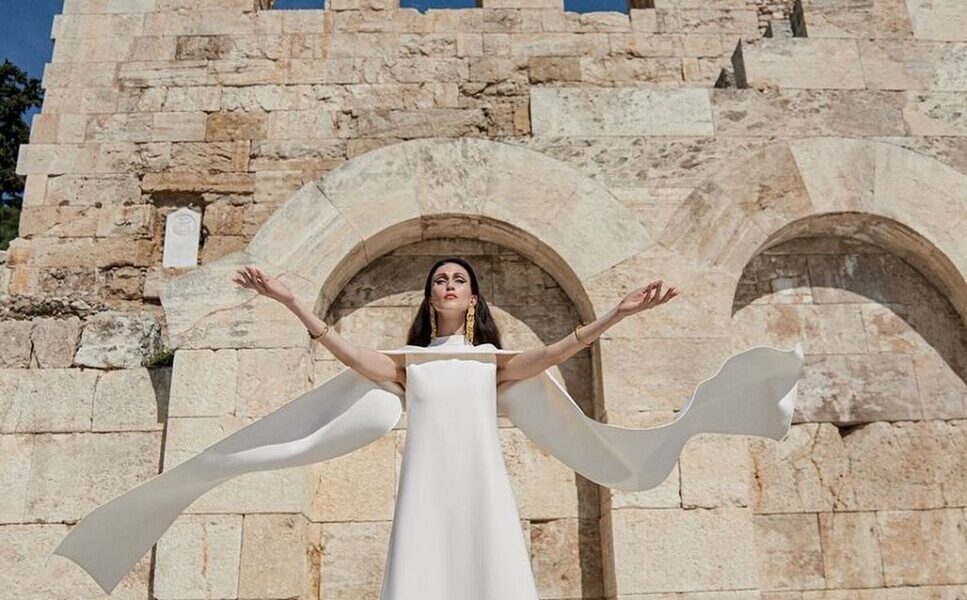In honor of Maria Callas' 100th birth anniversary, Vogue Greece draws inspiration from the iconic Greek soprano's extraordinary life in a special collector's edition dedicated to her remarkable journey.
Don't miss the December issue of Vogue Greece, hitting newsstands this Sunday 26/11.
Maria Callas: A Remarkable Journey Through Triumph and Tragedy
According to her mother, Cecilia Sophia Anna Maria was born on December 4, 1923 (though official records state two days earlier), just four months after her parents, Evangelia and Georges Kalogeropoulos, arrived in Manhattan, New York from Athens with their five-year-old daughter Jackie. Maria showed signs of her remarkable musical talent at a young age, and by 10, her promising voice began to emerge. In 1929, the family changed their name to Callas through a court order, although Georges refused to spend money on their vocal training. However, Evangelia was determined to develop Maria's voice, prompting her to return to Athens with their daughters in 1937.
Maria initially studied singing at the Conservatory of Ethnikon with Maria Trivella, later continuing her education under the renowned Spanish soprano Elvira de Hidalgo, who taught her the art of bel canto. De Hidalgo admired Maria's genius, discipline, and work ethic. After World War II, Maria turned her attention to her career in New York, returning to the name Callas in 1945.
Maria possessed an extraordinary soprano voice with a wide range, allowing her to interpret various types of opera roles. With her creative artistry, dramatic power, musicality, agility, and expressive ornamentations, Callas played a crucial role in reviving the neglected repertoire of the Rossini-Donizetti-Bellini "golden age" of bel canto opera.
In 1949, she married Giovanni Battista Meneghini, an entrepreneur 28 years her senior. However, their marriage ended in 1959 when Maria left him for Greek shipping magnate Aristotle Onassis. Her opera performances declined for a few years, but she made a comeback in 1964 and 1965 by performing Tosca and Norma at Covent Garden and Paris, as well as Tosca at the Metropolitan. In 1968, Onassis abandoned her, leaving her devastated.
Meanwhile, Maria's voice, the instrument through which she displayed her remarkable talent, began to decline prematurely due to overwork, emotional struggles, and her intense immersion into her roles. Loneliness consumed her during her seclusion in her Paris apartment, where her worn-out voice stifled her artistic genius. Her untimely death at 53 marked the end of her journey.
For over a year, Callas' ashes were kept in Paris before being scattered in the Aegean Sea. Preserved on recordings, her voice continues to captivate music lovers of all generations, immortalizing the great artist behind it.


